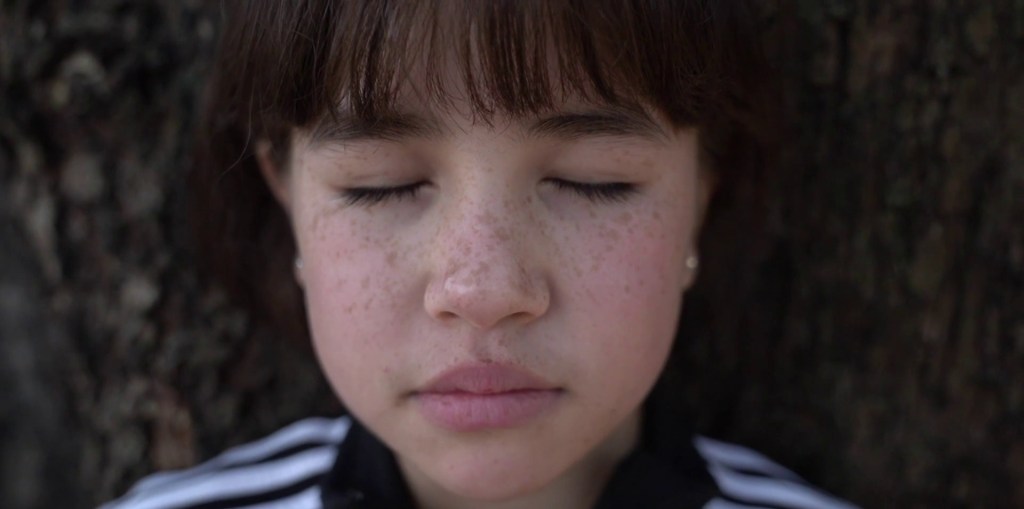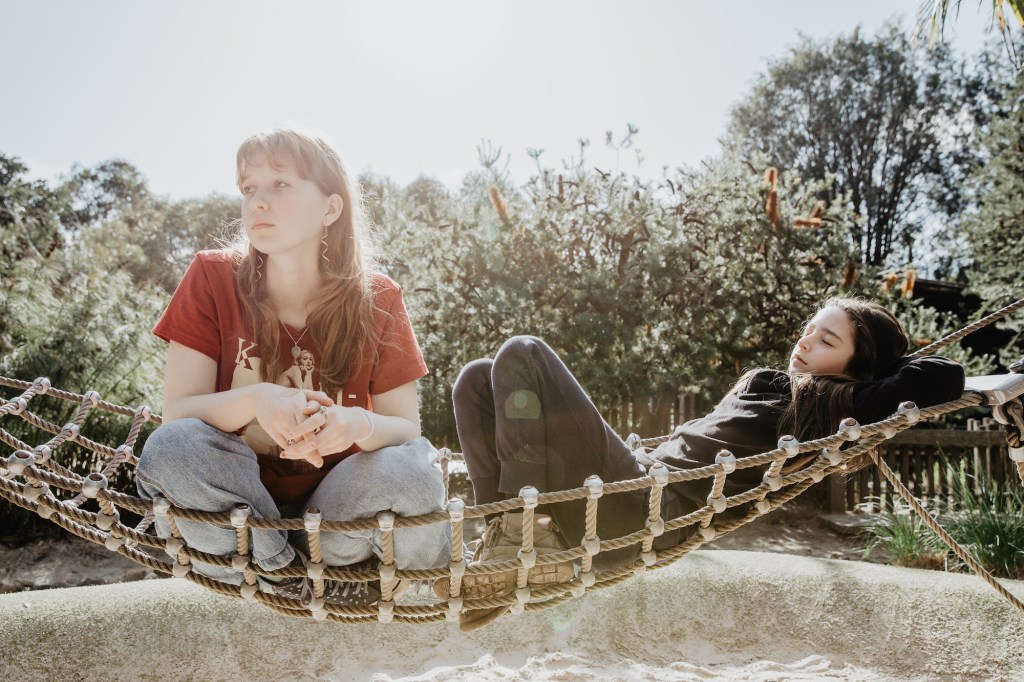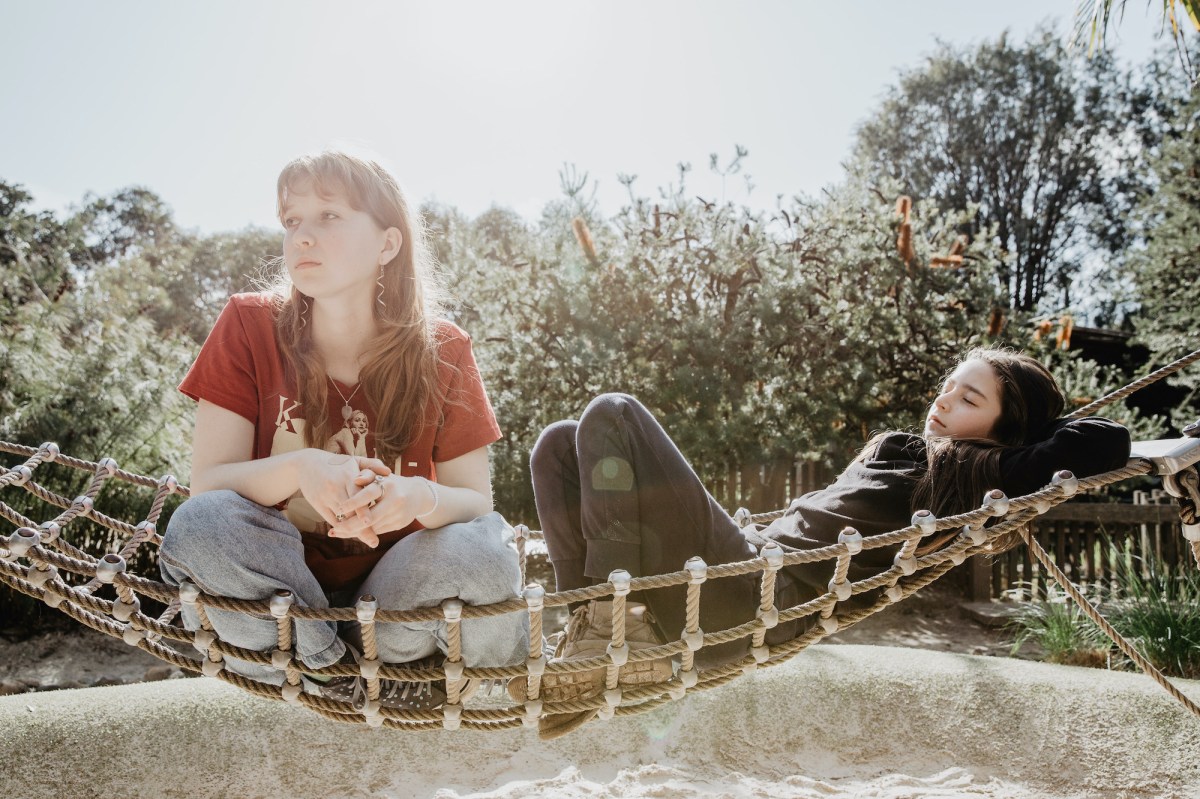Your feet in the grass. Your back against a tree. The breeze on your face, the warmth of the sun.
All things we seldom, if ever, get to experience in a theatre. But that is going to change with the premiere season of Gene Tree, an ‘ode to the planet’ that will immerse its audience in the great outdoors and a chorus of children’s voices and dreams of our possible futures.
Created by St Martins Youth Arts Centre, its young think tank ensemble Congress (aged 11-17), and 15 young people from Dandenong Primary School aged from nine to 12, Gene Tree will draw you away from your everyday and into the nooks and crannies of Melbourne’s Royal Botanic Gardens for encounters with the thoughts, feelings and hopes of young people asking ‘impossible questions’ about our relationship to our planet.
Gene Tree has long roots, Nadja Kostich, Artistic Director of St Martins and director of the project, tells ArtsHub.
‘It all started about six years ago with a collaboration with Elissa Goodrich, a composer, who invited me into an embryonic collaboration with evolutionary biologist Dr. Anna Syme that was asking, how we have changed the environment, and how has the environment changed us?’
The three women spent time creating a music-driven exploration of the themes, then invited and audience to respond to the work. ‘It was always the children in the audience who came up with the best and most interesting questions,’ Kostich recalled. ‘It just made sense for us to work with young people and have them lead the way.’

From that, Gene Tree would eventually spring, a work weaving storytelling, music and living sculptures into an outdoor promenade performance featuring a cast of 30 kids and a live four-piece band creating a ‘river of music’.
‘Evolution, replication, duplication, extinction and adaptation … music can take on those words and create a beautiful kind of external, visceral experience,’ Kostich said.
‘We’re describing the production as “designed by nature,’ she added. ‘Our artists are harnessing nature, reflecting sunlight. It’s extremely delicate in that way. We’d like to think that it asks people to lean in and notice small details. There’s no competing with nature. It’s about revealing our connectedness and showing that we are listening. And we wanted it to have the smallest environmental footprint possible.’
The young collaborators have been ‘beautiful partners’ in the making of Gene Tree, said Kostich. ‘The kids from Dandenong, in particular, come from one of the most culturally diverse areas in Australia and many of them are from families with refugee backgrounds from countries that have experienced war. I can’t begin to tell you how poignant it’s been to hear them talking about adaptation and change from their perspective and then finding resonances with our environment. They have been absolutely inspiring and also challenging, too. All the adults in the team have found themselves having really in-depth conversations about our relationship to nature.’

Young people seem to perceive the natural world from a completely different position, Kostich said. ‘So often, it’s the very small detail that captures them: a blade of grass, a raindrop on a leaf. We adults can be so “big picture” about everything and we miss so much.’
Gene Tree’s audience will be invited to promenade around the site and take in vignettes and happenings at 14 different locations. The work ends on the Princes Lawn with the audience taking in a spectacular finale featuring 30 children and the band set against the sunset.
Everyone will experience Gene Tree slightly differently, Kostich said. ‘It will be about making your own pathway, so leave your FOMO [Fear of Missing Out] behind. We say, take your time; you might not see everything, but you won’t miss anything. All the scenes complement each other in no particular order, and themes and motifs will repeat. You will come away with an experience that’s unique to you – something gentle that will bring a smile, a moment of wonder, yet stay with you. And you can always come back again.’
Gene Tree will be performed on 4, 5, 6, 11, 12, 13 November at 6.30pm, Royal Botanic Gardens (enter via Observatory Gate), Melbourne. Tickets and information here.
This performance is assisted wheelchair accessible. Contact the Royal Botanic Gardens Visitor Centre on (03) 9252 2429 for further information.
Auslan interpreted performances: Sunday 6 November and Saturday 12 November.






